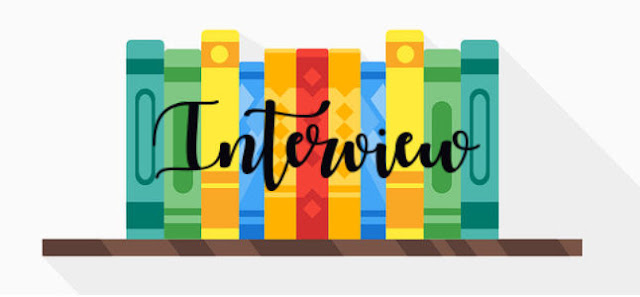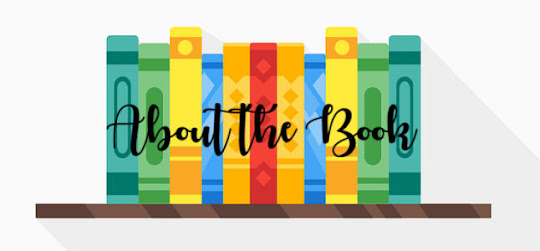📚 A Bookish Chat with 'Fighter Pilot's Daughter' Mary Lawlor | Author Interview | #AuthorInterview
Mary Lawlor is author of Fighter Pilot’s Daughter (Rowman & Littlefield 2013, paper 2015), Public Native America (Rutgers Univ. Press 2006), and Recalling the Wild (Rutgers Univ. Press, 2000). Her short stories and essays have appeared in Big Bridge and Politics/Letters. She studied the American University in Paris and earned a Ph.D. from New York University. She divides her time between an old farmhouse in Easton, Pennsylvania, and a cabin in the mountains of southern Spain.
You can visit her website at https://www.marylawlor.net/ or connect with her on Twitter or Facebook.
On writing:
There are many books out there....what makes yours different?
Unlike most family memoirs, Fighter Pilot’s Daughter weaves domestic life with foreign policy! In this case, the policies were those of the Cold War. My father was a pilot for the Marine Corps and later the Army during the hottest years of the Cold War, from the late 50s through the 1970s. Since he flew new kinds of helicopters and other, at the time cutting- edge aircraft, we moved every two years. I went to 14 different schools by the time I was ready for college. For every one of those moves, my sisters and mother and I would pack up everything we owned and then unpack it when we arrived at our new quarters. Where we moved depended on what the government needed my father to do. I lived in several places in the American south, in California, and Germany; and later in Southeast Asia and Spain. It was a discombobulated life that had many difficulties, thrills and surprises. Writing the book made me see clearly how strange and exciting it all was.
Where is your book set and have you ever been there?
Given the transitory nature of my father’s work—and the fact that my mother and sisters, and I usually went with him—Fighter Pilot’s Daughter is set in lots of different places. The book moves from my parents’ New Jersey beginnings to New York, where my sisters were born, to the American south, where Dad was stationed in the early days of his career as a military pilot, to California and Germany, where he was later posted; to Paris, where I started college, and Spain where I worked for a while. The later parts of the book take us to New York City, where I went to graduate school, and finally to Connecticut where my parents lived in their final years.
Do you have another profession besides writing?
For many years I was a literature professor at Muhlenberg College. For the past several years, however, my only work has been writing. Fighter Pilot’s Daughter was my first non-fiction, creative book. Since it was published I’ve been writing fiction. My novel The Translators, about a pair of priests who translated Arabic books in 12th century Spain, is in my agent’s hands right now. I hope it will be published next year.
How long have you been writing?
I’ve been writing ever since I started graduate school. I thought that period of my life would be brief and that, once I’d studied enough literature I’d be prepared to write fiction. But my MA led to a PhD and then I was offered a job teaching literature. I published two books of cultural studies (Recalling the Wild and Public Native America, both with Rutgers University Press). Many years later, I finally started to write creative non-fiction with Fighter Pilot’s Daughter.
What is your next project?
I’ve just finished a novel, The Translators, based on the lives of two historical figures--a pair of medieval priests who traveled to northern Spain in the 1140s, one from England and the other from Croatia. They met there and became close friends, learned Arabic and translated works in the libraries that once belonged to the emirs of al-Andalus (the southern part of the Iberian Peninsula that was Arab and Muslim from the year 711 through and beyond my characters’ time). I’ve fictionalized much of the priests’ lives, but the novel is extensively researched in the history of the time. A lot of tension arises in the story from the Church’s attitude toward the books the priests translate and make available to Christendom.
How are you similar to or different from your lead character?
What a fascinating question! Since I am the lead character in Fighter Pilot’s Daughter, I can only say I’ve changed in many ways—grown older, hopefully wiser, and am somewhat less rambunctious than I used to be!
I’d like to answer in relation to The Translators too. As a scholar and a dreamer, I have a lot in common with both of my lead characters, Daniel and Niklas. They’re both very learned—more so than I am. And they have bold imaginations that send them traveling far from home, exploring Arabic knowledge in books their church is very suspicious of. I’ve traveled a great deal and love going to far-away places (Spain and Morocco in particular). But in my scholarly work, I haven’t had an institution like the Catholic Church looking over my shoulder at the books I’m reading or writing about. That must have been a threatening experience for the men on whom my characters, Daniel and Niklas are based. But they pursue their translations bravely and with a passion to make scientific and philosophical knowledge known to the worlds they come from. I’d like to think I’d be that brave under similar circumstances, but I’m grateful I live in a democracy like the United States, where we’ve always been free from such fears. They seem to be threatened at the current moment, but I have confidence we’ll overcome these troubles.
In one sentence, what was the road to publishing like?
It was hard, and I had more than a few rejections; but my agent found me a good publisher in the end.
What is something you had to cut from your book that you wish you could have kept?
I didn’t have to cut much from the manuscript of Fighter Pilot’s Daughter. For The Translators, I’ve had to cut a few secondary characters and portions of the main plot. Since this is my first novel, my agent reminds me that publishers won’t likely be drawn to a long manuscript; but I was so deeply enmeshed in the world of the book, that I spun the story out too far. The book was almost 70,000 words longer than it should be, so I had a lot of cutting to do.
On rituals:
Do you snack while writing? Favorite snack?
Yes! I’m surprisingly oral when writing, and I seem to write more and better when I have food at hand. I love crackers and bananas—things that aren’t gooey or drippy and I can eat easily without spilling food all over my laptop!
Where do you write?
When I’m in the US, I often write in a sunny family room that’s away from the center of the house. I also have a study on the top floor, which is very nice, but not insulated—so I’m limited to fall and spring there, when the weather isn’t too hot or cold. In Spain I have my own, tiny house, apart from the “bigger” house (it’s also small), and that’s a wonderful place to write.
Do you write every day?
Yes! I miss some days when traveling or errands demand too much time, but I do everything I can to make sure I get some time to write every day. It’s important to do that and helps me and most writers I know stay connected and focused on their work.
In today’s tech savvy world, most writers use a computer or laptop. Have you ever written parts of your book on paper?
No, I haven’t. My books don’t ever see paper. I rely entirely on my laptop.
Fun stuff:
Favorite travel spot?
Spain! It’s a wonderful, welcoming country, with a host of beautiful, fascinating cities.
Favorite dessert?
Anything chocolate!
Any hobbies?
I love to swim and walk in the country. I do both regularly.
What song is currently playing on a loop in your head?
Carlos Santana’s “Samba Pa Ti.” I love Santana and heard this one on the radio yesterday. I can’t get it out of my head.
What is something that made you laugh recently?
My husband makes me laugh all the time. He’s very funny about ordinary, everyday things. He wrote a poem for some friends on a group WhatsApp chat that I can’t repeat, but it was hilarious.
What is your go-to breakfast item?
I love tea with milk first, then a banana, then coffee yoghurt. That starts my day.
What is the oldest item of clothing you own?
Great question! Really. I have a dress I fell in love with in a shop in Spain twenty years ago. The fabric is worn in places, but it’s still beautiful.
Tell us about your longest friendship.
I met her when we started teaching at Muhlenberg. She’s one of the funniest people I’ve ever known--used to teach New Testament in a religious studies department and then at a seminary in New Jersey, but, while an avid historian and fan of St. Paul, has always been an atheist. She’s now engaged in Native American religion and studying archaeology.
What advice would you give to a first time writer?
Keep at it every day. Listen to the words that sail through your mind, however briefly or dimly. They’re worth listening to and using. Remember doubt is part of the process: don’t let it stop you or get you down.
Fighter Pilot’s Daughter: Growing Up in the Sixties and the Cold War tells the story of Mary Lawlor’s dramatic, roving life as a warrior’s child. A family biography and a young woman’s vision of the Cold War, Fighter Pilot’s Daughter narrates the more than many transfers the family made from Miami to California to Germany as the Cold War demanded. Each chapter describes the workings of this traveling household in a different place and time. The book’s climax takes us to Paris in May ’68, where Mary—until recently a dutiful military daughter—has joined the legendary student demonstrations against among other things, the Vietnam War. Meanwhile her father is flying missions out of Saigon for that very same war. Though they are on opposite sides of the political divide, a surprising reconciliation comes years later.
Fighter Pilot’s Daughter is available at Amazon.























































































































































































































Leave a Comment